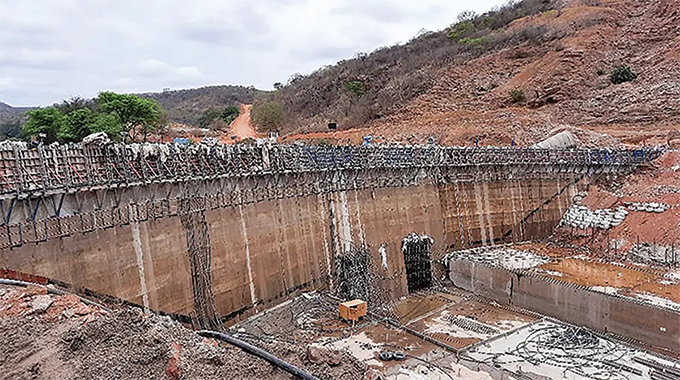
The Sunday News

Fairness Moyana in Hwange, Sunday News Correspondent
FAR from the provision of water to Bulawayo and the creation of an agricultural greenbelt downstream, not everyone would have thought that the construction of the Lake Gwayi-Shangani can aptly be described as a peace building project in the Matabeleland North communities.
The project that is in its homestretch has been touted as a game changer in reducing conflicts resulting from lack of access to water in Matabeleland North and Bulawayo with studies showing that water related conflicts and violence have been on the increase since 1900 and projections revealing that due to acute water crisis, the world may begin to experience inter-state and intra-state wars over water by 2030.
Population growth, worsening climate change effects, increasing water demand for commercial activities and poor water management strategies has exacerbated fresh water scarcity. The water scarcity has resulted in localised conflicts and violence over water resources both in rural and urban areas.

File picture: Lake Gwayi-Shangani under construction
A survey carried out by the Matabeleland Institute for Human Rights (MIHR) revealed that a national average of 7.4 percent rural households experience violence at water points as of the year 2020. Mashonaland Central at 11.2 percent has the highest prevalence of violence at water sources and Matabeleland South had the least at 4.8 percent. The survey reports that violence at water points was more defined in those areas where people spend more time queuing for water.
According to Zimbabwe Christian Alliance (ZCA), the construction of the lake will see the conflict over water declining as more people benefit through access to potable water and irrigation schemes. Speaking during the International Peace Day commemorations in Hwange last week, ZCA board member, Reverend Milson Ndlovu said the project was a welcome development that was going to deal with conflicts associated with access to water.
“To build peace we must ensure that we create transparency on the devolution process and allow the local community to participate in the development of their local areas. We therefore commend the government in developing the road infrastructure and the building of the Gwayi-Shangani Dam. Water has been a source of conflict and the Gwayi-Shangani Dam will provide water for Bulawayo and reduce water related conflicts in the communities,” said Rev. Ndlovu.
He said peace was required to achieve development while applauding government for its devolution policy arguing that it was necessary for building communities.
“This year’s theme ‘End Racism, Build Peace’ is a relevant theme for us in Zimbabwe. We are still building our communities to uproot roots of division based on ethnicity, tribes, party affiliation and race. In order for us to build peace we must recognise the important connection between peace and development. Therefore, it is important that both the central government and local authorities build an infrastructure that will facilitate development. We are glad that devolution is part of the new political dispensation and has been made a priority.”
He said more than 46 Local Peace Committees (LPC) have been established throughout the country over the past two years through collaborations with the church. Rev Ndlovu said there was need to craft policies that ensure access to minerals and natural resources by local communities to avoid conflict.

Gwayi-Shangani Dam project latest stage
“Our LPCs have been dealing with issues of conflict on resources extraction and this has led to artisanal mining violence. It is important to ensure that we have policies that ensure locals have access to the minerals and natural resources in their area to avoid conflict. Consideration should be given to natural resources, climate change and the environment which are key elements in building peace. In that regard we have launched a project in Matabeleland North to protect the environment and also engage with mining companies on a sustainable way of mineral extraction.”
Participants who included residents, political parties, churches and civil society interacted on different issues that were causing conflicts in the region. Participants also called on political parties to avoid the use of violence and hate speech arguing that it was destroying social cohesion and development as it divided the country.



